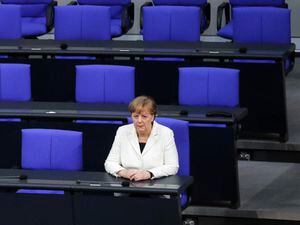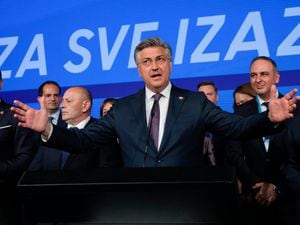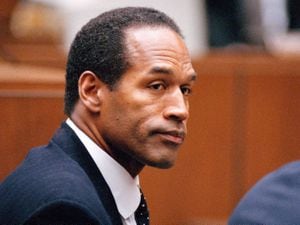Angela Merkel must hold together fragile coalition in fourth term as chancellor
The coalition took 171 days to put together.

Angela Merkel is starting her fourth term as German chancellor in stormy times as she heads a fragile coalition that took almost six months to put together.
She is facing pressure to bolster a fractious European Union and prove that liberal democracy can succeed as she faces a trade standoff with an increasingly protectionist US and a confident China and Russia.
Ms Merkel, chancellor since 2005 and the EU’s longest-serving leader, was sworn in on Wednesday at the head of a “grand coalition” of Germany’s biggest parties.
That put an end to months of drift after September’s election, during which Germany’s voice in the world was weakened by the domestic political impasse.
She can now turn her attention fully to matters such as French President Emmanuel Macron’s months-old proposals for ambitious reforms of the EU and its currency union, and US President Donald Trump’s threats of trade tariffs against the EU and even taxes on German carmakers.

It contains the same parties as her last administration — her Christian Democratic Union, its Bavaria-only sister party, the Christian Social Union and the centre-left Social Democrats — but putting the new administration together has been unprecedentedly difficult after all three lost significant support in September’s election.
A parliamentary vote on Wednesday to re-elect Ms Merkel came 171 days after the election, nearly double the previous record.
The Social Democrats initially planned to go into opposition after crashing to their worst result since the Second World War, but German President Frank-Walter Steinmeier nudged them into a reluctant about-turn after Ms Merkel’s talks with two smaller parties collapsed in November.
Ms Merkel was able to take office only after two-thirds of the Social Democrats’ members approved in a ballot the coalition deal clinched last month. With all the coalition parties keen to send signals of renewal, she leads a much-changed Cabinet.
At least 35 coalition politicians did not support her in Wednesday’s 364-315 vote, and Ms Merkel won only nine votes more than the absolute majority she needed.

“Finally we have a new government — a government of election losers, business as usual,” Alternative for Germany co-leader Alice Weidel said.
Ms Merkel, 63, has long dismissed the notion that she should be regarded as the “leader of the free world” following the election of Mr Trump, who is unpopular in Germany and elsewhere in Europe.
A strong advocate of multilateral solutions, she says that no one person or country can solve every problem.
However, Mr Steinmeier underlined expectations that Germany should serve as an example as he formally appointed her new government.
“Western liberal democracies are exposed to challenges, external as well as internal,” he said, with authoritarian alternatives gaining in confidence.
“The expectations of our friends and partners are huge, particularly in Europe,” Mr Steinmeier said. “Many hope we in Germany will show that liberal democracies are capable of acting and facing the future.”
Ms Merkel’s first trip abroad of her fourth term will take her to Paris on Friday to meet Mr Macron. 
In comments published on Wednesday by Germany’s Frankfurter Allgemeine Zeitung, the French leader was quoted as saying that “if Germany doesn’t move, part of my project is condemned to failure”.
He added: “I don’t think for a second that a European project can succeed without or against Germany.”
Elsewhere in Europe, Italy has entered post-election political gridlock just as Germany’s ends.
And there are growing tensions between western nations and countries in eastern Europe, such as the nationalist governments of Poland and Hungary.





